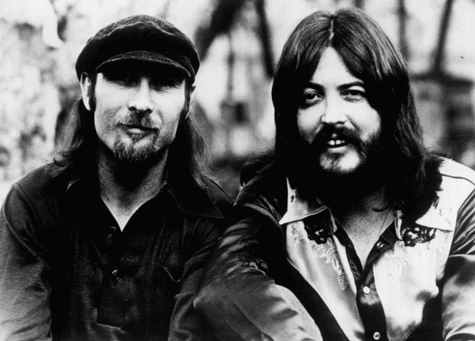The views expressed in our content reflect individual perspectives and do not represent the official views of the Baha'i Faith.
We have made it lawful for you to listen to music and singing. Take heed, however, lest listening thereto should cause you to overstep the bounds of propriety and dignity. Let your joy be the joy born of My Most Great Name, a Name that bringeth rapture to the heart, and filleth with ecstasy the minds of all who have drawn nigh unto God. We, verily, have made music as a ladder for your souls, a means whereby they may be lifted up unto the realm on high; make it not, therefore, as wings to self and passion. Truly, We are loath to see you numbered with the foolish – Baha’u’llah, The Most Holy Book, Par. 51.
My first introduction to classical music was the theme song to an old TV program called, “The Lone Ranger.” So I asked my dear mother, Sandra Kay (Thompson) Buck (d. 1991), to get me the “record” of that song. She was all too happy to give me my first exposure to classical music. She bought me an album (a vinyl “LP” in those days) that had the “William Tell Overture” (1829) by Italian composer, Gioachino Antonio Rossini (“The Italian Mozart”), as one of the tracks. I loved this music! It was so inspiring! I was exhilarated each time I heard it. Later, in college, before every cross-country race, I’d play this music quite loud, to inspire me to run the four-, five- or six-mile race as fast as I could.
Then, as a kid, I asked for a “record” of the music of the TV series, “Alfred Hitchcock Presents.” So, again, by dear mother was all too happy to oblige. She bought me another LP which had the track, “Funeral March of a Marionette” (1879) by French composer, Charles-François Gounod, best known for his “Ave Maria.” (See https://www.youtube.com/watch?v=zH7nXgzKpM0.) I continued listening to that music ever since.
That said, music is a matter of personal taste. For instance, I just listen to this piece, “Deep Distance,” from the album, New Age of Earth (1976) by Ash Ra Tempel, which always inspires me. (See this live performance of “Deep Distance” by Manuel Göttsching in 2013: https://www.youtube.com/watch?v=kmSvTxlRjbw.) But others may not like it.
Music stirs the emotions. Music can inspire lofty thoughts, or arouse passionate desire. It depends on the music and, of course, on the listener. So what is the ideal role of music, according to Baha’i teachings?
In the passage above, Baha’u’llah states that the purpose of music is for spiritual upliftment: “We, verily, have made music as a ladder for your souls, a means whereby they may be lifted up unto the realm on high.” With this praise of music comes with a word of warning: “Make it not, therefore, as wings to self and passion.”
This does not mean that music has one purpose and one purpose only. After all, music is part of life and culture. It is one of the arts. The Baha’i Faith, in fact, promotes the arts.
Not all music is created the same. There is great music — celebrated masterpieces — and music that is banal. That said, what other guidance does the Baha’i Faith offer regarding music — such as composing, performing and listening to music?
There are many “reported statements” attributed to Abdu’l-Baha, which may give a fairly accurate “gist” off his outlook on music. But this information is suggestive, not definitive. And so the following excerpt from a “Tablet“ (letter) of Abdu’l-Baha is all the more useful:
O servant of Bahá! Music is regarded as a praiseworthy science at the Threshold of the Almighty, so that thou mayest chant verses at large gatherings and congregations in a most wondrous melody and raise such hymns of praise at the Mashriqu’l-Adhkar [Baha’i House of Worship] to enrapture the Concourse on High. By virtue of this, consider how much the art of music is admired and praised. Try, if thou canst, to use spiritual melodies, songs and tunes, and to bring the earthly music into harmony with the celestial melody. Then thou wilt notice what a great influence music hath and what heavenly joy and life it conferreth. Strike up such a melody and tune as to cause the nightingales of divine mysteries to be filled with joy and ecstasy. – From a Tablet to an individual believer. (Translated from the Persian.)
Here, it’s interesting that music is elevated to that of a “praiseworthy science.” I think this means such things as skill (virtuosity) and creativity, rather than research and development. Of course, music has its own “theory“ and schools of thought. But, in practice, these combine to produce actual works of music.
 Music also plays a role in personal and social identity. For instance, when I first became a Baha’i over 40 years ago, the popular group, Seals & Crofts, who were well-known Baha’is, inspired me and how confirmed me in my Baha’i identity. One of the most inspiring Seals & Crofts songs, for me, was “Nine Houses” (1973). See https://www.youtube.com/watch?v=PyqXdCkJ9V0.
Music also plays a role in personal and social identity. For instance, when I first became a Baha’i over 40 years ago, the popular group, Seals & Crofts, who were well-known Baha’is, inspired me and how confirmed me in my Baha’i identity. One of the most inspiring Seals & Crofts songs, for me, was “Nine Houses” (1973). See https://www.youtube.com/watch?v=PyqXdCkJ9V0.
There is yet another dimension to music, which goes beyond mere “music appreciation.” And that is the intercultural aspect of music. I’m not necessarily talking about “world music in the sense of fusion music,“ but the simple pleasure of enjoying the music of diverse cultures. Its educational as well as entertaining. In this way, music functions as a “cultural ambassador.” The more we appreciate the music and arts of other cultures, the less inclined we are to continue harboring any lingering prejudices towards those cultures.
Music is part of Baha’i culture and Baha’i community life. The more there is, the more vibrant the Baha’i experience can be. Although there is no such distinctive art as a formal “Baha’i music,” there are some great pieces of music composed by Baha’i artists.
When I was a professor at Michigan State University (2000–2004), I was invited by a colleague to give a lecture/presentation on Baha’i music. The professor was David W. Stowe, author of How Sweet the Sound: Music in the Spiritual Lives of Americans (Cambridge, MA : Harvard University Press, 2004). As I recall, these are some of the exemplars of Baha’i inspired and Baha’i composed music that I presented to Professor Stowe’s students:
“The Garden of Ridvan”
(lyrics by James Seals; music by James Seals, Jack Lenz and Kingsley Thurber, 1992?)
Performed by Dan Seals (solo)
& Baha’i World Congress Choir & Orchestra (November 1992)
Music of the Baha’i World Congress
https://youtu.be/DfaFW1FZflc
“Queen of Carmel”
Performed by ???
& Baha’i World Congress Choir & Orchestra (November 1992)
Words and music by Jeannie Murday.
http://grooveshark.com/#!/album/Music+Of+The+Baha+i+World+Congress/4643260
“Look at Me, Follow Me”
Performed by Paul Seaforth (solo)
& Baha’i World Congress Choir & Orchestra
Music of the Baha’i World Congress
Words and music by Jackie Elliot & Tom Price. Lift up your Voices, Vol. 1, CD.
https://www.youtube.com/watch?v=jyx-YILlUOM
http://grooveshark.com/#!/album/Music+Of+The+Baha+i+World+Congress/4643260
“Dastam Begir”
Performed by ???
& Baha’i World Congress Choir & Orchestra
Music of the Baha’i World Congress
https://youtu.be/kEpoCMEndZI
Following the presentation, Professor Stowe said that he would like to have included a section on Baha’i music in his book.
There is a harmony between music — that inspires and uplifts — and the inner harmony of the soul, transforming such music into “soul music” in the broadest and finest sense of the word.

















Comments
Sign in or create an account
Continue with Facebookor